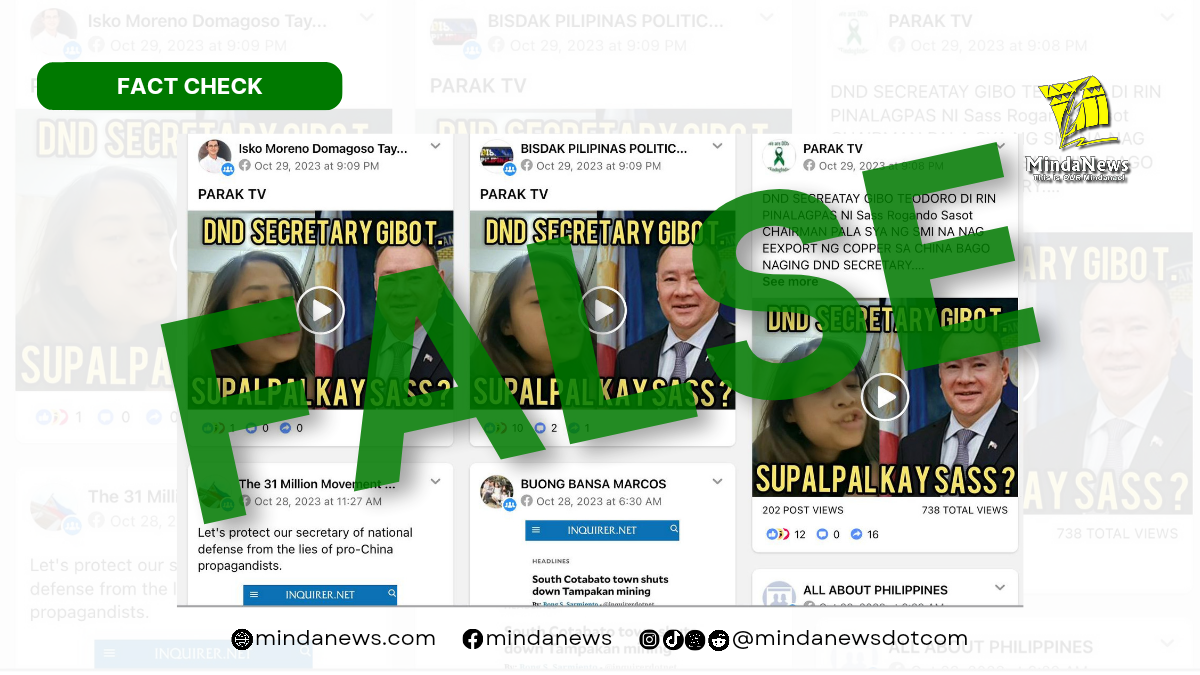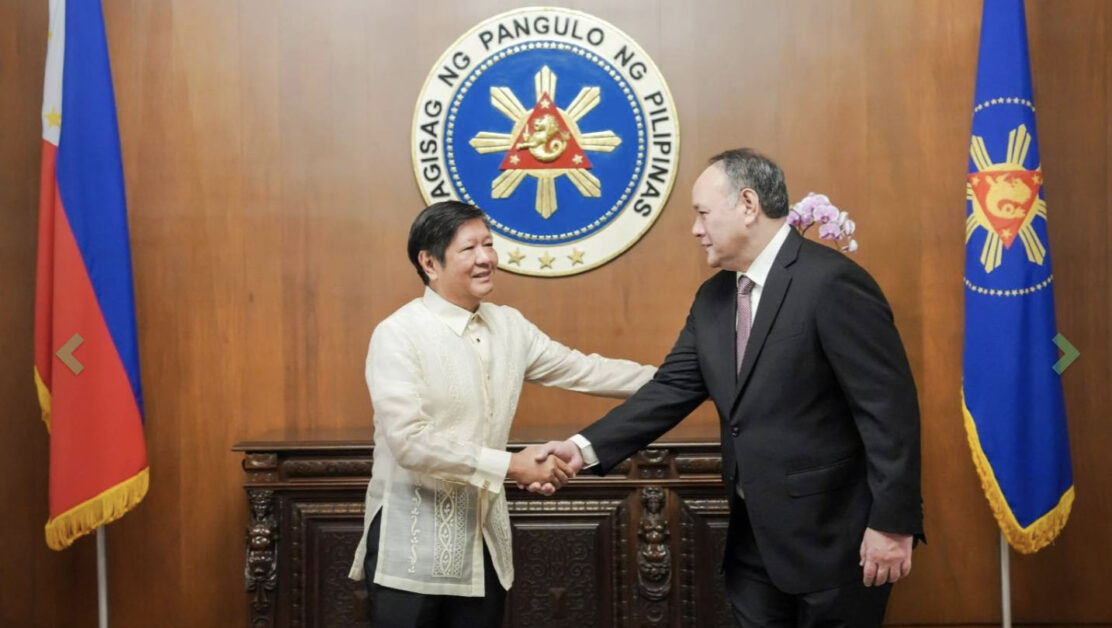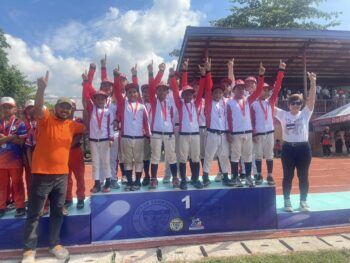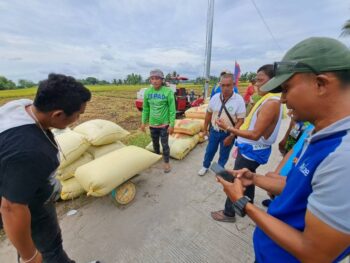
Blogger Sass Sasot’s claim that Sagittarius Mines Inc. (SMI), developer of the controversial Tampakan project, the largest undeveloped copper and gold minefield in Southeast Asia, has started exporting to China is false.
In a video circulating in various Facebook pages, Sasot stated that Defense Secretary Gilberto “Gibo” Teodoro Jr. has earned billions from the Tampakan project with China as the market.
This is a disinformation stunt.
SMI has yet to start extracting mineral deposits from its concession area in Tampakan, South Cotabato.
President Ferdinand Marcos Jr. appointed Teodoro as Defense Secretary on June 6, 2023.

Teodoro served as Chairman of the Board of SMI from 2015 up to his appointment and led the company in achieving critical milestones for the Tampakan project, putting it in a ready position to construct and operate as soon as possible, the company said in a statement dated June 8, 2023.
Sasot hit Teodoro for “doublespeak”: attacking Beijing on the West Philippine Sea issue on one hand, and “earning billions from China through the shipment of copper products from the Tampakan project” on the other hand.
In a statement, Atty. Stella Joy Segocio, SMI Legal and Compliance Department manager, vehemently belied the claim of Sasot that the firm had been exporting to China.
“At the moment, SMI has not begun commercial operations yet,” she said on November 8.
Statements suggesting that SMI presently exports copper and enjoys enormous profits are false, misleading and irresponsible, Segocio said, apparently referring to Sasot’s post.
Sasot’s Facebook page For the Motherland – Sass Rogando Sasot, which is followed by 876.9k users, was taken down by Meta on Tuesday, January 2, but the particular video post is still circulating in various Facebook pages.
Last April, the company announced in a media luncheon in Metro Manila that “full-swing” mining operations will begin in 2026.
An open-pit mining ban, which was imposed by the provincial government of South Cotabato, has been in effect since 2010. In 2022, the then set of Sangguniang Panlalawigan (SP) lifted the ban, but was vetoed by South Cotabato Gov. Reynaldo Tamayo Jr.
The open-pit mining ban has been a hot social issue in South Cotabato province and a thorn in the neck of SMI for over a decade now.
Thousands of residents took to the streets to demand for its stay after the SP lifted it in May 2022.
On the other hand, supporters of the Tampakan project argued that Republic Act 7942 or the Philippine Mining Act of 1995 does not prohibit open-pit mining method in the country.
The Philippine government granted a Financial and Technical Assistance Agreement (FTAA) to SMI in 1995. The 25-year FTAA was set to expire on March 21, 2020, but was extended by the Mines and Geosciences Bureau for 12 years – or until March 21, 2032 – in an order issued June 8, 2016 but made known only in January 2020.
The FTAA is subject to renewal for another 25 years.
According to an SMI study, the most viable method to extract the minerals is through open-pit mining due to their shallow location from the surface. The firm vows to employ “responsible mining operations.”
Based on a company study, the Tampakan project has the potential to yield an average of 375,000 metric tons of copper and 360,000 ounces of gold in concentrate annually throughout the “17-year life of the mine.”
The local Catholic Church has been crusading against the Tampakan project, especially its planned open-pit mining method, on concerns over the environment, human health and food security.
As with all our other reports, MindaNews welcomes leads or suggestions from the public to potential fact-check stories.
MindaNews is a verified signatory to the Code of Principles of the International Fact-Checking Network. (Bong S. Sarmiento / MindaNews)







